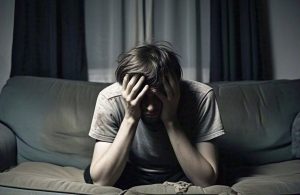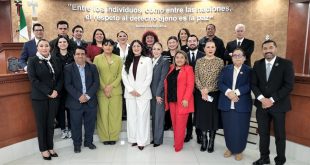 -Editorial
-Editorial
The declining mental health of children and young adults is the ʻcrisis of our time,’ says former US Surgeon General Vivek Murthy. More than 22% of Gen Z young adults reported having a major depressive episode in 2023, according to data from the National Institute of Mental Health. 4 out of 10 children report persistent feelings of sadness.
Depression rates are highest among Latino youth, while young Black men have the highest rates of suicide. In 2022, suicide was the leading cause of death for Asian Americans ages 15-24.
The mental health of young people in the United States has reached alarming levels, driven by a complex mix of digital pressures, academic stress, and lingering effects of the COVID-19 pandemic, said Dr. Ovsanna Leyfer, a licensed clinical psychologist and research assistant professor at Boston University at a recent panel hosted by American Community Media.
“We’ve witnessed a steep and troubling rise in mental health issues among young people,” said Dr. Leyfer, who works with the Child and Adolescent Fear and Anxiety Treatment Program. “Anxiety, depression, ADHD, and behavioral challenges have all become significantly more common.”
Leyfer pointed to a 40% increase in high schoolers reporting persistent sadness or hopelessness between 2009 and 2019, a trend that only worsened during the pandemic. She described the crisis as “a perfect storm,” fueled by social media, heightened academic competition, economic instability, and climate anxiety.
Despite the challenges, Leyfer emphasized hope through proven treatments like Cognitive Behavioral Therapy (CBT), which she described as “the gold standard” for youth anxiety and depression. “CBT empowers young people by giving them tools they can use throughout their lives,” she said. “When done well and made available, it is more effective than anything else we currently have.”
Dr. Kiara Álvarez, Bloomberg Assistant Professor of American Health at Johns Hopkins, emphasized the urgent need to address systemic inequities and adopt a multifaceted response.
“This isn’t something we can solve solely at the individual level,” Dr. Álvarez said. “It’s about overlapping risk factors, social, economic, and structural, that disproportionately affect youth of color and those with multiple marginalized identities.”
She pointed to alarming data from the 2023 Youth Risk Behavior Survey, noting that over 53% of high school girls and 28% of boys reported feeling persistently sad or hopeless. Latino, Indigenous, and multiracial youth reported particularly high rates.
“Many of these young people never receive care,” Álvarez said. “For decades, we’ve seen consistent disparities, Latino, Black, Indigenous, and Asian youth access mental health services far less than their white peers, even when facing the same severity of symptoms.”
Dr. Álvarez stressed the importance of building trust through community-rooted solutions, such as peer support programs, youth-led initiatives, and culturally responsive care. “The future of mental health care must start where people already are, in schools, neighborhoods, and trusted local organizations,” she said.
Soo Jin Lee, a licensed marriage and family therapist and co-director of the Yellow Chair Collective and Entwine Community, says Asian American youth face unique mental health challenges shaped by intergenerational trauma, cultural stigma, and systemic invisibility.
Speaking from her perspective as a Korean American practitioner, Lee emphasized that many AAPI youth struggle with anxiety, depression, and loneliness while feeling pressure to succeed and appear composed. Cultural values and the model minority myth often prevent open conversations about emotional well-being.
Lee called for more culturally responsive care, noting that only about 3% of U.S. psychologists identify as Asian. She warned that therapists without cultural awareness may unintentionally cause harm by overlooking deep-rooted family values like filial piety.
Through initiatives like the Entwine Retreat, Lee’s organizations offer community-based healing spaces that combine traditional practices with mental health support. “Our youth deserve to feel seen, understood, and supported in ways that reflect their cultural identities,” she said.


